
Yaren District: The Heartbeat of Nauru
Yaren District is the unofficial capital of Nauru, a tiny island nation in the Pacific Ocean. Nestled on the southwestern coastline, Yaren is the political and administrative center of Nauru. While it may not boast the grandeur of sprawling metropolises, Yaren offers a unique charm with its serene beaches, friendly locals, and a rich cultural tapestry. Explore the Nauru Parliament House, a symbol of the nation's governance, and gain insight into the country's political history. The district is also home to the Aiwo Boat Harbor, where you can witness local fishermen bringing in their daily catch, offering a glimpse into the island's traditional lifestyle. For nature enthusiasts, Yaren's coastal area provides opportunities for swimming and snorkeling in crystal-clear waters. The nearby Buada Lagoon, though technically outside Yaren, is a must-visit for its lush greenery and tranquil atmosphere. Yaren may be small, but its welcoming spirit and scenic beauty leave a lasting impression on every visitor.
Local tips in Yaren District
- Carry cash, as ATMs are scarce and many places do not accept credit cards.
- Visit during the dry season from May to October for the best weather.
- Dress modestly and respect local customs, especially when visiting governmental buildings.
- Explore on foot or by bike, as Yaren is small and easily navigable.
Yaren District: The Heartbeat of Nauru
Yaren District is the unofficial capital of Nauru, a tiny island nation in the Pacific Ocean. Nestled on the southwestern coastline, Yaren is the political and administrative center of Nauru. While it may not boast the grandeur of sprawling metropolises, Yaren offers a unique charm with its serene beaches, friendly locals, and a rich cultural tapestry. Explore the Nauru Parliament House, a symbol of the nation's governance, and gain insight into the country's political history. The district is also home to the Aiwo Boat Harbor, where you can witness local fishermen bringing in their daily catch, offering a glimpse into the island's traditional lifestyle. For nature enthusiasts, Yaren's coastal area provides opportunities for swimming and snorkeling in crystal-clear waters. The nearby Buada Lagoon, though technically outside Yaren, is a must-visit for its lush greenery and tranquil atmosphere. Yaren may be small, but its welcoming spirit and scenic beauty leave a lasting impression on every visitor.
When is the best time to go to Yaren District?
Iconic landmarks you can’t miss
Parliament House
Explore the architectural beauty and political significance of Parliament House, the heart of Nauru's governance and a symbol of its cultural identity.
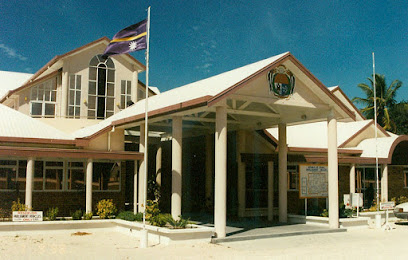
Naoero Museum
Explore Nauru's cultural heritage at the Naoero Museum, where history comes alive through engaging exhibits and local stories.
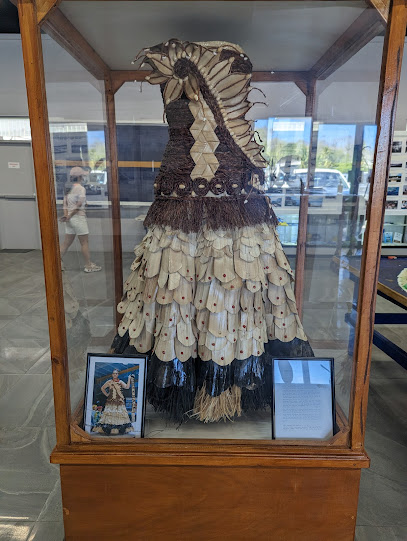
Yaren Place
Experience the vibrant local culture and community spirit at Yaren Place, Nauru's welcoming community center where tradition meets everyday life.

Moqua Caves
Discover the stunning Moqua Caves in Yaren, a natural wonder filled with rich history and breathtaking geological formations.

Unmissable attractions to see
Chad Park
Discover the tranquility of Chad Park, a lush green oasis perfect for relaxation, family fun, and community events in paradise.

Meneng Cave
Explore Meneng Cave in Anibare, a stunning natural attraction with breathtaking rock formations and rich biodiversity, perfect for adventurers and nature lovers.
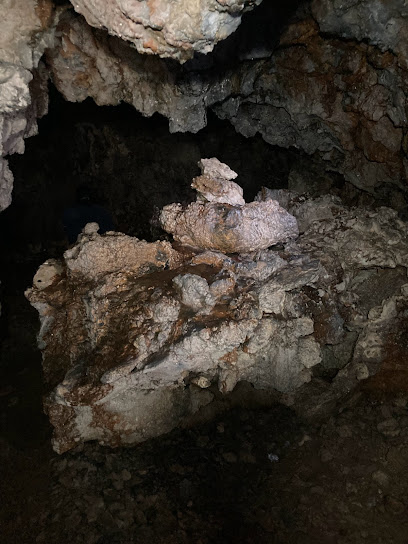
Anibare Bay Beach
Discover the unmatched beauty of Anibare Bay Beach, a serene paradise with pristine sands and vibrant marine life in Nauru.
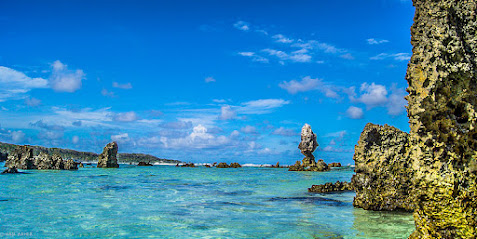
Aiwo Beach
Experience the tranquil beauty and vibrant marine life at Aiwo Beach, a hidden gem on Nauru's stunning coastline.
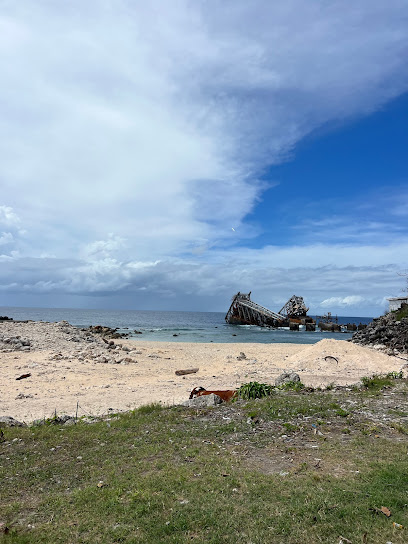
Naru
Explore the pristine hiking trails of Naru in Waboe, where lush landscapes and tropical beauty await every adventure seeker.

Essential places to dine
The Bay Restaurant
Experience the flavors of Nauru at The Bay Restaurant – where stunning ocean views meet exquisite local cuisine.
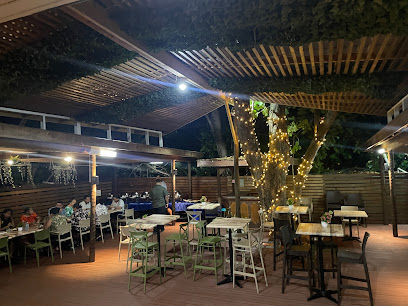
OMG Sushi Restaurant
Experience authentic Japanese flavors at OMG Sushi Restaurant in Orro – where fresh ingredients meet culinary artistry.
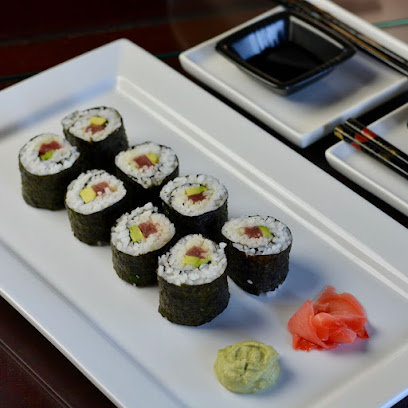
Star Kingdom
Experience authentic Asian flavors at Star Kingdom in Boe, Nauru – a top dining destination celebrated for its fresh ingredients and warm hospitality.
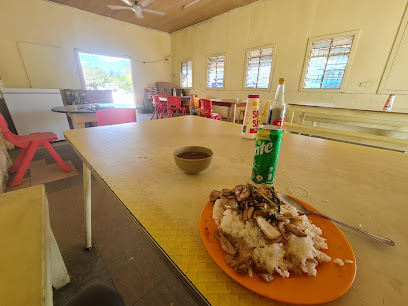
Chinese Restaurant Buada
Experience the vibrant taste of China at Chinese Restaurant Buada in Arenibek – where every meal is a journey through authentic flavors.

Anibare Boat Harbour Restaurant
Experience exquisite local cuisine at Anibare Boat Harbour Restaurant with stunning views in Nauru.
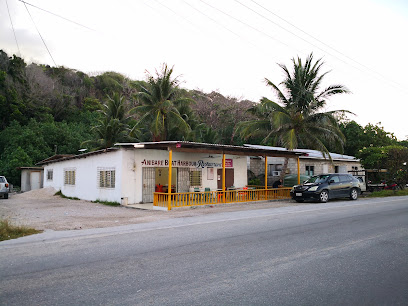
Florrowest Restaurant
Experience authentic flavors at Florrowest Restaurant in Boe, where local ingredients meet warm hospitality in a cozy setting.
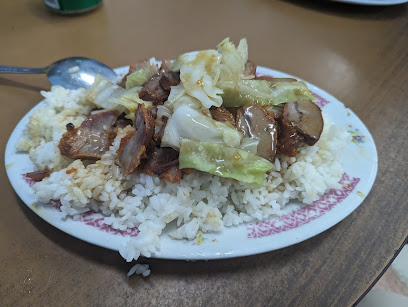
Somewhere Else in Nauru
Discover authentic Nauruan flavors at Somewhere Else in Nauru, where every dish tells a story of tradition and taste.
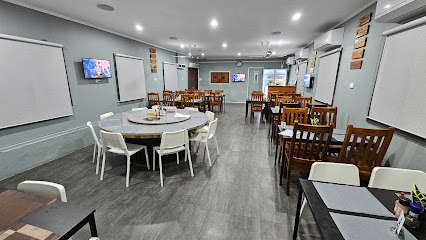
Moon River Restaurant
Experience the flavors of China at Moon River Restaurant in Arijejen—your destination for authentic cuisine by the waterfront.
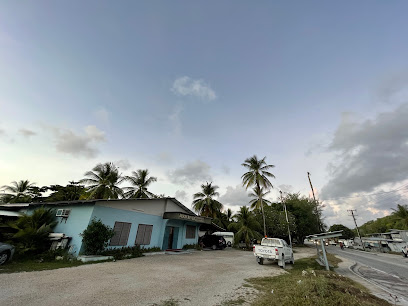
Jullem
Experience authentic Chinese cuisine at Jullem in Anibare - where every dish tells a story and flavors come alive.
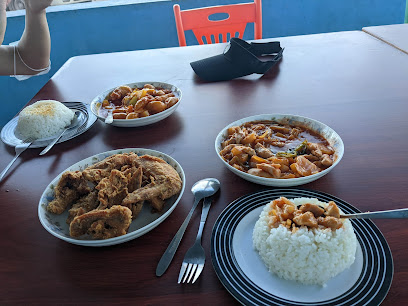
Lucky Tigeress Yum Cha
Experience authentic yum cha delights at Lucky Tigeress Yum Cha in Arijejen - where every bite tells a story.
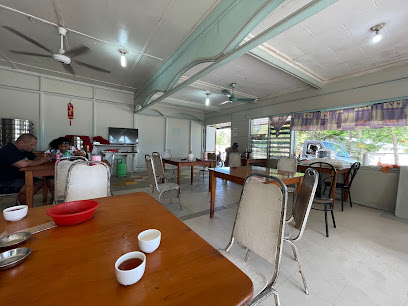
J’ RESTAURANT
Discover the best Chinese restaurant in Arijejen, where authentic flavors meet exceptional service for an unforgettable dining experience.
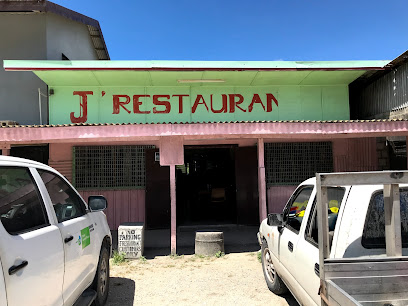
Double J
Discover the flavors of Ibwenape at Double J – where local ingredients meet culinary creativity in a cozy dining atmosphere.
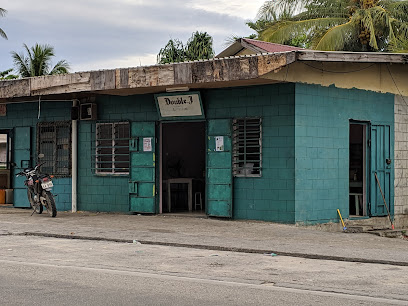
Gabab Restaurant
Experience authentic Chinese cuisine at Gabab Restaurant in Boe - where vibrant flavors meet warm hospitality.
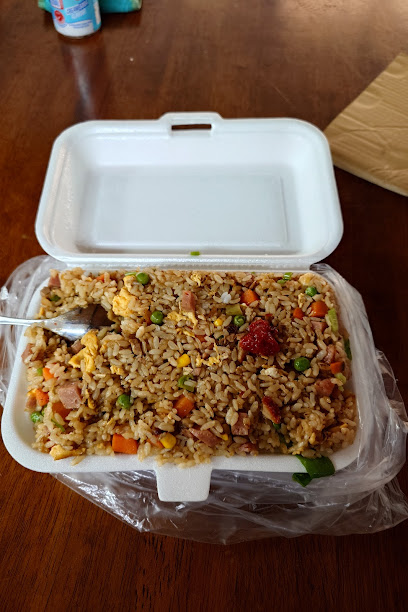
K-Love Restaurant
Experience the authentic flavors of Nauru at K-Love Restaurant in Yaren – where local cuisine meets warm hospitality.
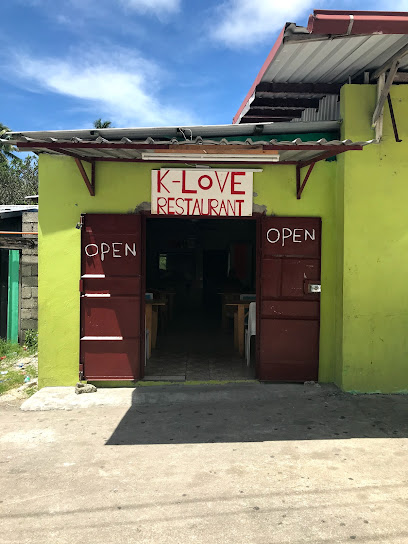
Fortuna Cantonese Restaurant
Discover the authentic taste of Cantonese cuisine at Fortuna in Yaren – a culinary haven for food lovers seeking genuine flavors.
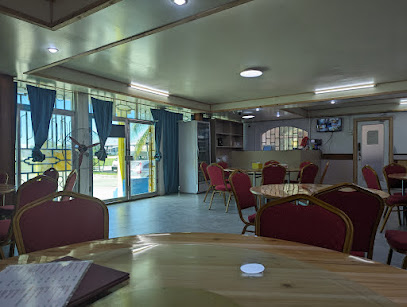
Markets, malls and hidden boutiques
Eigigu Supermarket
Experience authentic local shopping at Eigigu Supermarket in Boe, where fresh produce meets unique Nauruan snacks for every traveler.
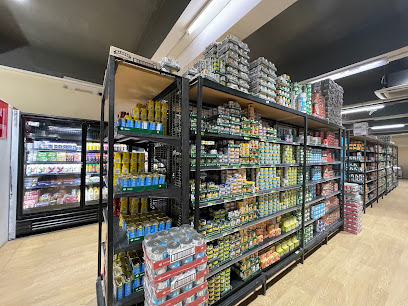
Pacific store
Experience the essence of Nauru at Pacific Store, your go-to grocery destination in Nibok for local flavors and authentic products.
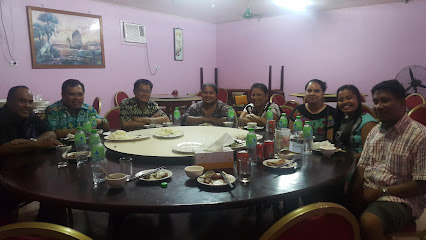
Zombies Store
Explore the quirky charm of Zombies Store in Yaren, a delightful general store filled with unique souvenirs and local treasures that capture the essence of the region.

Vim No.1 Store
Vim No.1 Store: Your gateway to local flavors and the heart of Nauru's grocery shopping experience.
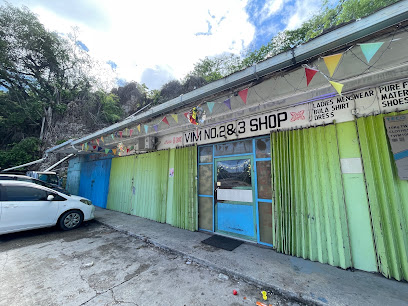
Ataro Bay Store
Explore Ataro Bay Store for local groceries, unique island snacks, and a taste of the culture during your travels.
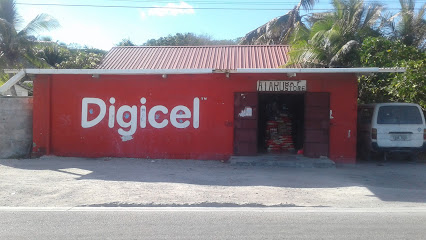
Milton Ross Store
Explore Milton Ross Store in Yaren for a delightful shopping experience filled with local flavors and essentials for your travels.
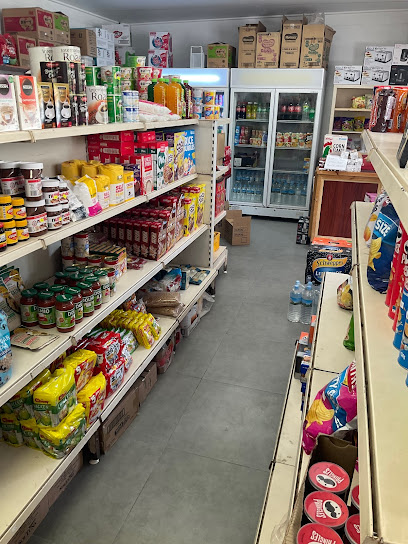
Elizabeth's Garden
Explore unique local treasures at Elizabeth's Garden, a charming store in Boe known for its friendly service and delightful products that capture the spirit of the region.
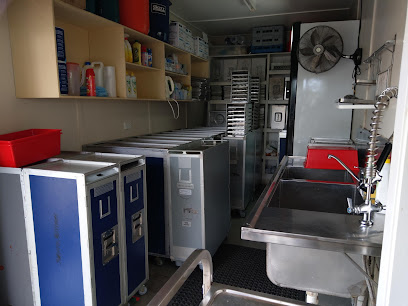
Sunset CornerEnterprise
Discover Sunset Corner in Borderline, your essential general store for local delights, groceries, and fuel during your travels.

Rainbow Store
Discover the Rainbow Store in Baiti for colorful essentials, local snacks, and a friendly atmosphere perfect for tourists exploring the area.
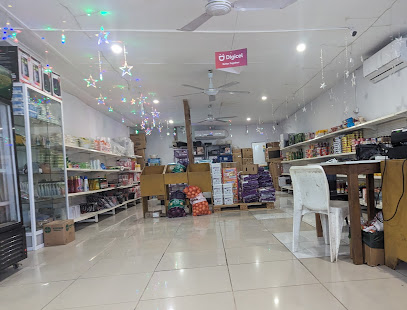
Tuka Luka Store
Discover the essence of Nauru's fashion at Tuka Luka Store, where local culture meets unique style in a vibrant shopping experience.

MyStore
Explore Yaren's charm at MyStore, your go-to general store for local foods and essential supplies, enriching your Nauru adventure.

Pick n Save
Discover the charm of Nauru at Pick n Save, your go-to general store for local goods, snacks, and unique souvenirs in Yaren.
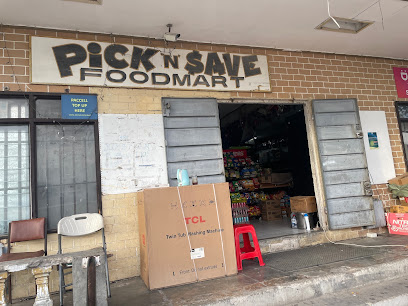
Aredetõ Store
Explore Aredetõ Store in Arenibek for local snacks, drinks, and unique products that showcase the vibrant culture of the region.

Halo Store
Experience the local charm and essential goods at Halo Store in Arenibek, a must-visit for travelers seeking authenticity.
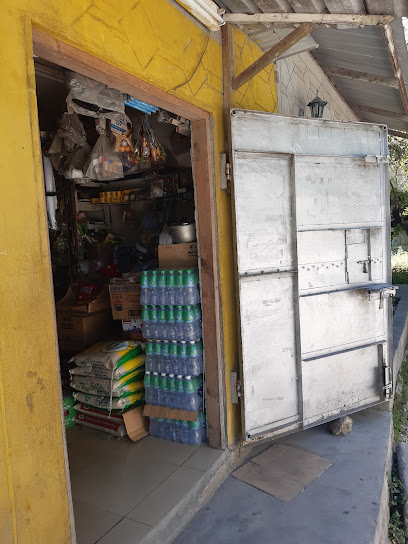
Abwan Warehouse
Explore Abwan Warehouse: A Unique Home Goods Store in Nibok, Arijejen, Offering Authentic Local Crafts and Essentials.

Essential bars & hidden hideouts
The Bay Restaurant
Experience the exquisite flavors of Anibare at The Bay Restaurant, where stunning ocean views meet delightful local cuisine.
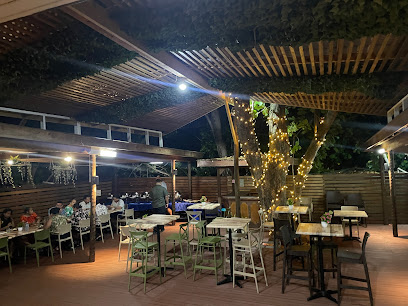
Jules On The Deck
Jules On The Deck: A vibrant bar in Nibok offering stunning views and a diverse selection of drinks for an unforgettable experience.
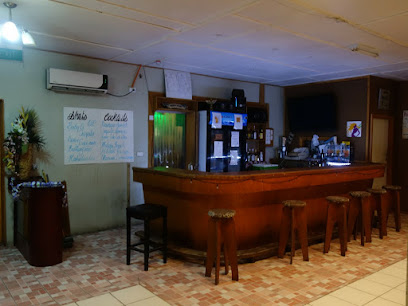
OMG Sushi Restaurant
Discover the flavors of Japan at OMG Sushi Restaurant in Orro, where fresh ingredients and traditional techniques create an unforgettable dining experience.

Mr Chippies
Discover the flavors of Anibare at Mr Chippies, where local ingredients meet delicious creativity in a welcoming atmosphere.
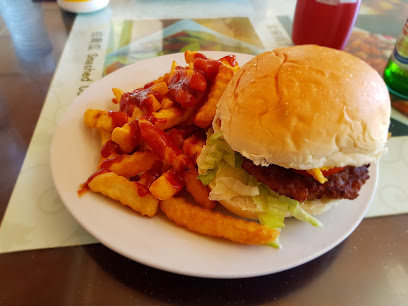
Star Kingdom
Experience the vibrant tastes of Asia at the Star Kingdom in Boe, where every dish is a culinary adventure waiting to be savored.
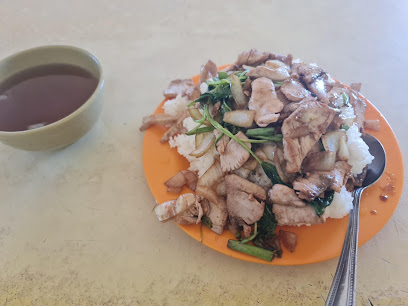
Chinese Restaurant Buada
Experience authentic Chinese flavors in Arenibek at Chinese Restaurant Buada, where every dish tells a delicious story.

Somewhere Else in Nauru
Discover the authentic taste of Nauru at Somewhere Else, a charming restaurant offering local flavors and a welcoming atmosphere.
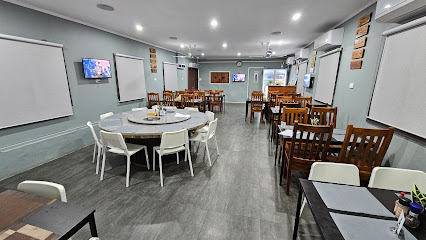
Double J
Discover the flavors of Ibwenape at Double J, where local cuisine meets warm hospitality in a charming dining setting.
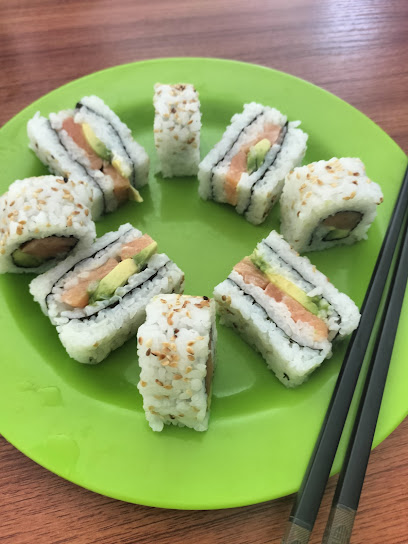
Gabab Restaurant
Experience the best of Chinese cuisine at Gabab Restaurant in Boe, where generous portions and authentic flavors await every food lover.
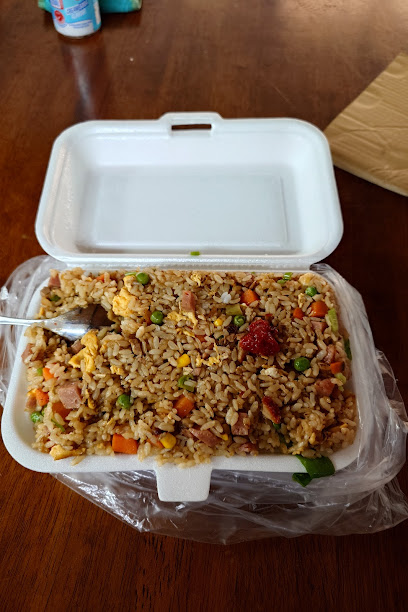
K-Love Restaurant
Discover the flavors of Nauru at K-Love Restaurant, where local ingredients meet international culinary traditions in a cozy setting.
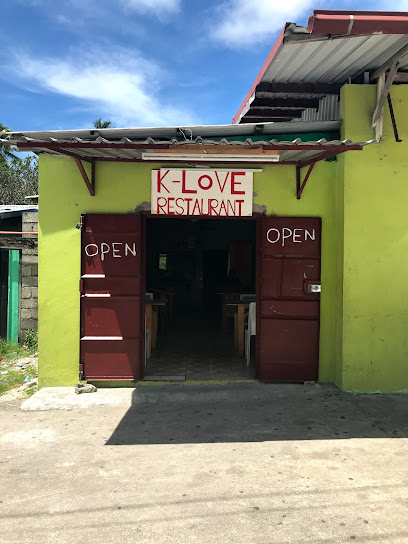
Fortuna Cantonese Restaurant
Experience authentic Cantonese flavors at Fortuna Cantonese Restaurant in Yaren, where culinary artistry meets a warm, inviting atmosphere.
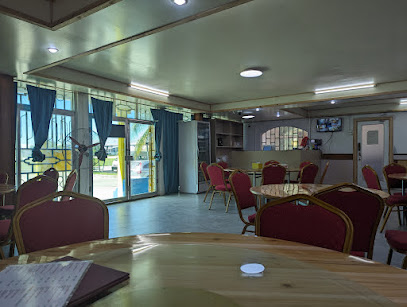
Golden Bridge Restaurant
Experience the essence of authentic Chinese dining at Golden Bridge Restaurant in Yangor, where every dish tells a flavorful story.
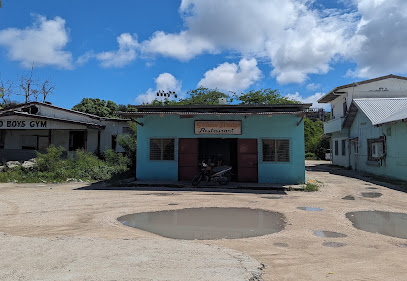
Sushi Restaurant
Discover the finest sushi in Ibwenape, where culinary craftsmanship meets fresh, local ingredients for an unforgettable dining experience.
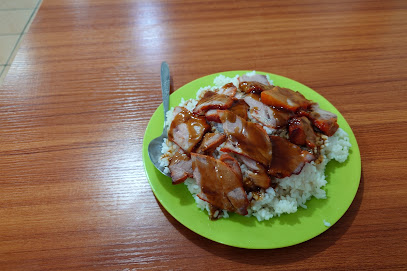
WangJiao Breakfast Restaurant
Experience the best of Boe's breakfast offerings at WangJiao Breakfast Restaurant, located conveniently in the international airport.
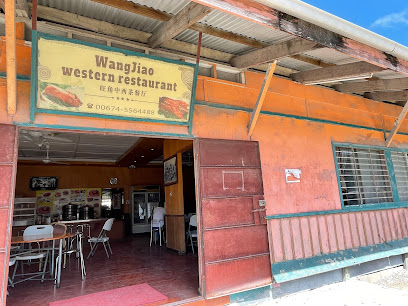
Local Phrases about Yaren District
-
- HelloIaorana
[yah-oh-rah-nah] - GoodbyeNoho
[noh-hoh] - YesE ua
[eh-ooh-ah] - NoE leai
[eh-leh-eye] - Please/You're welcomeFa'amalie
[fah-ah-mah-lee-eh] - Thank youFa'afetai
[fah-ah-feh-ta-ee] - Excuse me/SorryFa'amalie
[fah-ah-mah-lee-eh] - How are you?O fea oe?
[oh-feh-ah-oh-eh] - Fine. And you?Lelei. O oe?
[leh-leh-ee. oh-oh-eh] - Do you speak English?Ou te le tusia i le fa'ainglisi?
[oh-oo-teh-leh-too-see-ah-ee-leh-fah-ah-eeng-lee-see] - I don't understandE le mafai ona ou maua
[eh-leh-mah-fai-oh-nah-oh-mah-oo-ah]
- HelloIaorana
-
- I'd like to see the menu, pleaseO a ou te va'ai i le menu, fa'amalie
[oh-ah-oh-teh-vah-eye-ee-leh-meh-noo-fah-ah-mah-lee-eh] - I don't eat meatE le oua'ea i lauta
[eh-leh-oh-oo-eye-ah-ee-lah-oo-ah-eh-ah] - Cheers!Manuia!
[mah-noo-ee-ah] - I would like to pay, pleaseO a ou te tu'uina, fa'amalie
[oh-ah-oh-teh-too-oo-ee-nah-fah-ah-mah-lee-eh]
- I'd like to see the menu, pleaseO a ou te va'ai i le menu, fa'amalie
-
- Help!Tulou!
[too-loh-oo] - Go away!Ae ou te alu
[ah-eh-oo-teh-ah-loo] - Call the Police!Vala'au leoleo!
[vah-lah-ah-oo-leh-oh-leh-oh] - Call a doctor!Vala'au foma'i!
[vah-lah-ah-oo-foh-mai] - I'm lostUa ou te iloa
[oo-ah-oh-oo-teh-ee-loh-ah] - I'm illUa ou te mafai
[oo-ah-oh-oo-teh-mah-fai]
- Help!Tulou!
-
- I'd like to buy...O a ou te fa'atau...
[oh-ah-oh-teh-fah-ah-tah-oo] - I'm just lookingOu te va'ai fa'apea
[oh-oo-teh-vah-eye-fah-ah-peh-ah] - How much is it?E fia le totogi?
[eh-fee-ah-leh-toh-toh-gee] - That's too expensiveO lelei ma lelei le totogi
[oh-leh-leh-ee-mah-leh-leh-ee-leh-toh-toh-gee] - Can you lower the price?E mafai ona fa'ataga le totogi?
[eh-mah-fai-oh-nah-fah-ah-tah-gah-leh-toh-toh-gee]
- I'd like to buy...O a ou te fa'atau...
-
- What time is it?O le a le taimi?
[oh-leh-ah-leh-tah-ee-mee] - It's one o'clockE tasi i le taimi
[eh-tah-see-ee-leh-tah-ee-mee] - Half past (10)I le iva ma le gumu
[ee-leh-ee-vah-mah-leh-goo-moo] - MorningAoauli
[ah-oh-ah-oo-lee] - AfternoonAfiafi
[ah-fee-ah-fee] - EveningTaeao
[tah-eh-ah-oh] - YesterdayAnanafi
[ah-nah-nah-fee] - TodayA le aso nei
[ah-leh-ah-soh-neh-ee] - TomorrowAso ma le aia
[ah-soh-mah-leh-eye-ah] - 1Tasi
[tah-see] - 2Lua
[loo-ah] - 3Tolu
[toh-loo] - 4Fa
[fah] - 5Lima
[lee-mah] - 6Ono
[oh-noh] - 7Fitu
[fee-too] - 8Valu
[vah-loo] - 9Iva
[ee-vah] - 10Gumu
[goo-moo]
- What time is it?O le a le taimi?
-
- Where's a/the...?O fea le...?
[oh-feh-ah-leh] - What's the address?O le fa'amatalaga?
[oh-leh-fah-ah-mah-tah-lah-gah] - Can you show me (on the map)?E mafai ona fa'ailoa mai ia te oe?
[eh-mah-fai-oh-nah-fah-ah-ee-loh-ah-mah-ee-ah-teh-oh-eh] - When's the next (bus)?Pe aisea le susu e oti?
[peh-ah-ee-seh-ah-leh-soo-soo-eh-oh-tee] - A ticket (to ....)Tiketi (i le ....)
[tee-keh-tee-ee-leh]
- Where's a/the...?O fea le...?
History of Yaren District
-
The history of Yaren District, like much of Nauru, is deeply rooted in the traditions of the indigenous Nauruan people. The district was initially inhabited by the Micronesian and Polynesian settlers who arrived on the island thousands of years ago. The local culture was heavily influenced by these early settlers, who developed a unique societal structure based on clans and matrilineal inheritance.
-
In the late 19th century, Yaren District came under the influence of European colonial powers. In 1888, Nauru was annexed by the German Empire, and Yaren, like the rest of the island, underwent significant changes. The Germans introduced new administrative structures and began to exploit the island's natural resources, particularly phosphate, which would come to play a crucial role in Nauru's economy.
-
During World War II, Yaren District, along with the rest of Nauru, was occupied by Japanese forces from 1942 to 1945. This period was marked by hardship for the local population, as the Japanese military imposed strict controls and utilized local resources for the war effort. The occupation ended when Allied forces liberated the island in 1945.
-
After World War II, Yaren District became part of the United Nations Trust Territory of the Pacific Islands, administered by Australia. This period saw the rebuilding of infrastructure and the establishment of modern administrative systems. In 1968, Nauru gained independence, and Yaren District became the de facto capital of the newly sovereign state, housing key government buildings and institutions.
-
The discovery and intensive mining of phosphate dramatically altered the economic landscape of Yaren District. During the 20th century, phosphate mining brought considerable wealth to the area, funding infrastructure development and public services. The Yaren District became the administrative heart of the mining operations, with many government offices and facilities established to manage the industry.
-
In recent years, Yaren District has focused on balancing development with the preservation of Nauruan culture. Efforts have been made to document and celebrate traditional practices, language, and folklore. The district continues to play a central role in Nauru's political, economic, and cultural life, serving as a hub for both governance and community activities.
Yaren District Essentials
-
Yaren District is located on the island nation of Nauru in the Pacific Ocean. The only way to reach Nauru is by air. Nauru International Airport (INU) is the sole airport on the island and is situated in Yaren District. Nauru Airlines operates flights to and from Brisbane (Australia), Nadi (Fiji), and Tarawa (Kiribati). Ensure you check flight schedules and availability in advance, as flights can be infrequent.
-
Yaren District is small, and many places are accessible by foot. For longer distances, taxis are available, though they can be relatively expensive. Renting a car is an option, but availability may be limited. Nauru does not have a public transport system, so arranging private transportation is often necessary for travel around the island.
-
The official currency of Nauru is the Australian Dollar (AUD). Credit cards are accepted in some hotels and larger establishments, but it is advisable to carry cash for smaller transactions. ATMs are available, but it is wise to carry sufficient cash, especially when traveling outside of Yaren District.
-
Yaren District is generally safe for tourists, with low crime rates. However, it is always prudent to take standard precautions such as avoiding walking alone at night and keeping an eye on your belongings in public places. There are no specific high-crime areas targeting tourists, but staying vigilant is recommended.
-
In case of an emergency, dial 110 for police assistance or 111 for medical emergencies. The Nauru Police Force and the Republic of Nauru Hospital are both located in Yaren District. Ensure you have travel insurance that covers medical emergencies. For minor health issues, there are pharmacies where you can purchase over-the-counter medications.
-
Fashion: Do dress modestly, especially when visiting local villages or attending events. Avoid wearing overly revealing clothing. Religion: Do respect local customs and traditions. Be mindful when visiting religious sites, and dress appropriately. Public Transport: As there is no public transport system, if using private taxis, do agree on the fare beforehand. Greetings: Do greet locals with a smile or a nod. Handshakes are common, but not obligatory. Eating & Drinking: Do try local dishes and accept food offerings graciously. Don't waste food, as it is considered disrespectful.
-
To experience Yaren District like a local, visit the local markets and interact with the residents. Attend community events or traditional ceremonies if possible. Engage with locals, as they are often friendly and willing to share stories about their culture and traditions. Don't miss visiting the Moqua Caves and the Buada Lagoon for a unique experience.
Nearby Cities to Yaren District
-
Things To Do in Yaren
-
Things To Do in Aiwo
-
Things To Do in Buada
-
Things To Do in Denigomodu
-
Things To Do in Anibare
-
Things To Do in Uaboe
-
Things To Do in Ijuw
-
Things To Do in Anabar
-
Things To Do in Kosrae
-
Things To Do in Mili
-
Things To Do in Majuro
-
Things To Do in Aur
-
Things To Do in Lata
-
Things To Do in Auki
-
Things To Do in Tulagi









